Proven strategies to attract, assess, and hire the right talent while minimising hiring risks.
Imagine this — you’ve finally landed a new hire for a crucial role in your business. They seemed great on paper, the interview went well, and you were eager to get them started. But within months, you start noticing problems — missed deadlines, lack of engagement, and tension within the team.
You’re now faced with a tough choice: invest more time and resources into training them, or let them go and start the entire hiring process again.
For many small and medium-sized businesses (SMEs) in New Zealand, this is an all-too-common and costly cycle. Unlike larger organisations with dedicated HR teams, SME owners often manage recruitment themselves — on top of running the business. The pressure to hire quickly, combined with limited recruitment expertise, can lead to hasty decisions that don’t align with long-term business goals.
Poor hiring choices don’t just affect productivity. They impact team morale, customer relationships, and overall business growth. In New Zealand’s tight labour market, SMEs need a strategic and intentional approach to hiring — supported by clear HR systems and advice that set you up for long-term success.
The solution – a smarter approach to hiring
Rather than viewing recruitment as a one-off task, successful SMEs take a long-term, strategic approach to hiring. Here are five proven strategies to improve your recruitment process.
1. Define your ideal candidate
Before posting a job ad, take time to clearly define the role. Ask yourself:
What specific skills and experience are essential for success?
What personal attributes will help them fit into your company culture?
What challenges will they face, and what kind of mindset is best suited to overcoming them?
A well-crafted job description should go beyond a list of tasks. It should outline the purpose of the role, key performance expectations, and the type of person who will thrive in your business environment. If you need guidance creating clear, compliant job descriptions or agreements, our HR support services can help.
2. Advertise where it matters
Many SMEs default to job boards like Trade Me or Seek. While these are effective, they’re not always where your ideal candidates are looking. Consider:
Niche job boards: Industry-specific platforms attract professionals with specialised skills.
LinkedIn and social media: Great for reaching passive candidates who aren’t actively job hunting.
Referrals: Encourage your team and industry contacts to refer people. The best hires often come from trusted networks.
Our Business Advisory team can also help you think strategically about your recruitment marketing — ensuring you’re positioning your business as an employer of choice.
3. Create a structured hiring process
A consistent process helps reduce bias and ensures you’re hiring based on merit, not instinct. Your process might include:
Phone screening: A short call to gauge enthusiasm, basic skills, and fit.
In-depth interviews: Use competency-based questions and real-world scenarios (e.g. “Tell me about a time you dealt with a difficult customer”).
Practical assessments: Ask candidates to complete a short, role-relevant task. For example, a sales candidate could prepare a short pitch.
If you’re unsure how to structure interviews or assess candidate fit, our HR consultants can provide templates, processes, and practical guidance tailored to your business.
4. Hire for attitude, train for skill
While skills and experience matter, attitude often predicts success more accurately. A candidate who’s adaptable, eager to learn, and aligned with your company values is usually a better long-term hire than someone who looks perfect on paper but lacks motivation or cultural fit.
Once you’ve found the right people, ongoing training and development helps them grow with your business.
Ask yourself:
Does this person show a strong work ethic and willingness to learn?
How do they handle feedback and problem-solving?
Do they align with your company’s mission and values?
5. Think beyond the immediate role
Recruitment isn’t just about filling a vacancy — it’s about building a team that will help your business grow. Consider:
Can this person grow with your company?
Do they bring new ideas or perspectives?
How will they contribute to your workplace culture?
Be transparent about career progression, training opportunities, and long-term expectations. This helps attract people who are genuinely invested in your business — not just their next pay cheque.
For owners wanting to align people strategy with wider business goals, our Business Advisory services offer confidential, real-world support.
Reflective scenario – what would you do?
You’re hiring for a sales role and have two candidates shortlisted:
Candidate A: Ten years of sales experience but seems disengaged and indifferent about your business.
Candidate B: Two years of experience but shows enthusiasm, curiosity, and a strong work ethic.
Who would you choose?
Using the strategies above, you might realise that Candidate B — despite having less experience — has the right mindset and values. With the right support, they could become a loyal, high-performing employee. Candidate A, on the other hand, might never truly connect with your team or business goals.
Golden nugget
“Hire character. Train skill.” — Peter Schutz, Former CEO of Porsche
A strong recruitment strategy isn’t just about filling a role — it’s about making smart, intentional hiring decisions that strengthen your business for the long term. Taking the time to recruit the right person can save you time, money, and stress while building a team that truly supports your company’s success.
If you’d like help creating a clear, compliant, and consistent recruitment process, talk to our HR team or Business Advisory specialists today.




